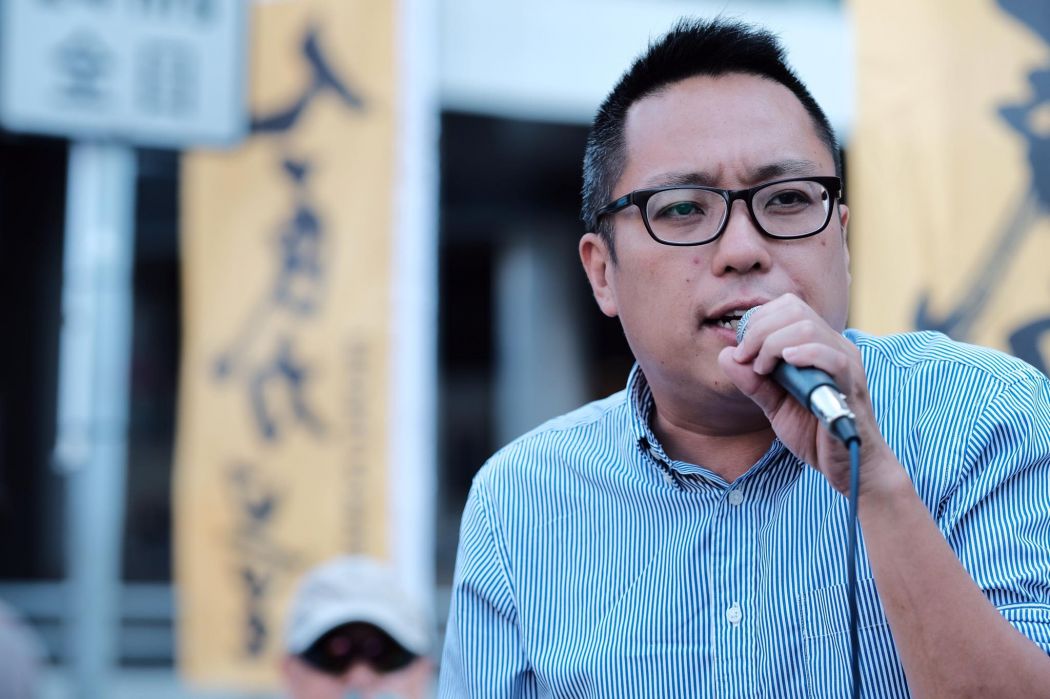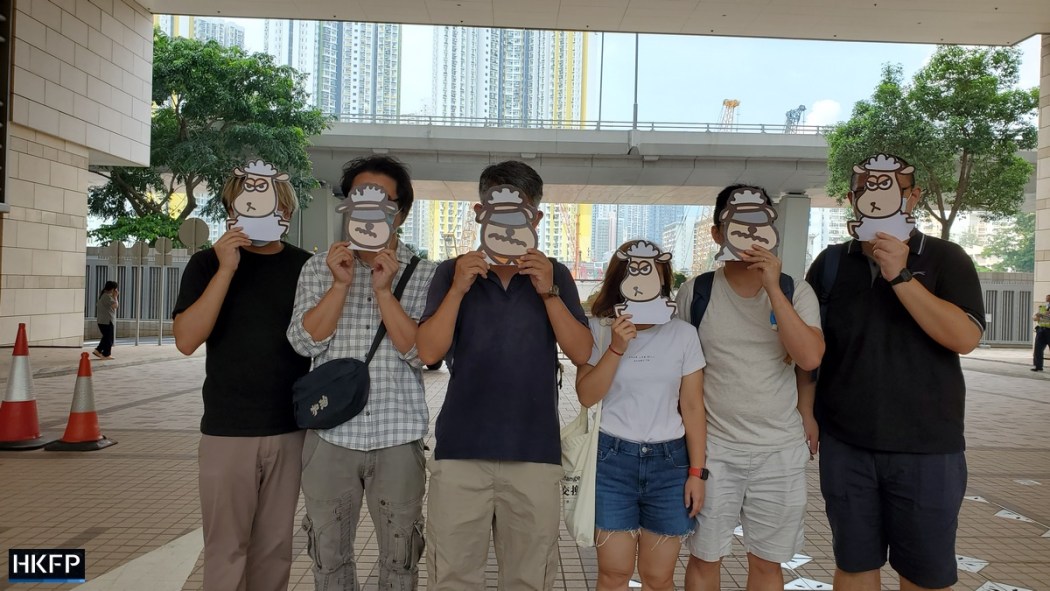By Angeline Chan
Last Wednesday, “Fast Beat” Tam Tak-chi was convicted in the District Court of uttering seditious words, conspiracy to utter seditious words, and other charges. This is the first reasoned judgment of the Hong Kong courts substantively considering the offence of sedition.
A crucial legal issue in this case is whether the sedition offence is constitutional. This offence was created by sections 9 and 10 of the Crimes Ordinance (Cap. 200), which make it a criminal offence for anyone to do any act with a seditious intention, to utter any seditious words, or to print, publish, or display any seditious publications.

The maximum sentence for the offence of sedition, which was created by the colonial British government before the handover, is two years in prison. However, the Court of Final Appeal’s ruling on an application for bail by former General Union of Speech Therapists member Sidney Ng Hau-yi held that because it was an offence endangering national security, the presumption against bail as provided by the Beijing-enacted national security law also applies.
This offence thus carries serious consequences.
The sedition offence makes the expression of certain ideas illegal. Thus, as accepted by the court in Tam’s case, the freedom of expression is restricted. The freedom of speech is protected by Article 27 of the Basic Law, and Article 16 of the Hong Kong Bill of Rights.
It is well established by case law that restrictions on fundamental rights have to be a) prescribed by law and b) pass a proportionality test in order to be constitutional. Tam’s case hence presented an opportunity for the court to analyse whether the sedition offence was constitutional.

For a restriction to be prescribed by law, it must a) be adequately accessible, and b) sufficiently precise for a citizen to regulate their conduct. In Tam’s case, the defence argued that the vague terms in the Crimes Ordinance defining a seditious intent were not sufficiently precise as to be prescribed by law: “to bring into hatred or contempt”, “to raise discontent or disaffection”, “to promote feelings of ill-will and enmity”, etc.
Furthermore, to be constitutional, restrictions on fundamental rights must be proportionate. The test for proportionality is well established. Crudely put, the four-step analysis is meant to ensure that restrictions on rights are for proper purposes and are no more than necessary, and do not result in unacceptably harsh burdens on affected individuals.
Unfortunately, the opportunity for constitutional analysis in Tam’s case was completely missed. The judge commented that “often, statutory offences cannot be clearly defined, because statutes have to be interpreted in the light of the times, such as changes in the environment, or the age, or the atmosphere in society. Otherwise, statutes would have to be amended frequently. This allows conceptual terms such as ‘enmity’, ‘ill-will’, ‘disaffection’, and ‘hatred’ to be interpreted by the courts in a manner that is sensitive to the context at hand.”
Oddly enough, this extract seemed to endorse precisely what does not fulfill the “prescribed by law” requirement. Furthermore, the judge did not engage in the four-step proportionality analysis. Finally, the judge considered that case precedents from other jurisdictions would not be of crucial importance.

This reflects a regrettable neglect of Hong Kong’s international human rights obligations, including the International Covenant of Civil and Political Rights. UN Special Rapporteurs noted on different occasions that the law of sedition in Hong Kong is not in compliance with international human rights law, and the UN Human Rights Committee has also expressed its concern.
Many states have by now abolished the offence of sedition. This includes the UK, which provided the template for Hong Kong’s own sedition offence. In most states that still have a sedition offence, it is limited to situations where the accused incited the public to violence against the state – a much higher threshold than in Hong Kong.
Everyone who lives and works in Hong Kong counts on the judiciary to uphold their rights, and not merely to pay lip service to it. If the claim is made that the rule of law is well and alive in Hong Kong, that has to be seen to be believed. We may note too that the national security law itself provides that human rights are to be protected – and consider whether that matches our own observations of how that law has played out in the year since its enactment.
When the Honourable Mr. Justice Tang, Permanent Judge of the Court of Final Appeal, left office in 2018, he said the following: “If we as a community insist on the rule of law, it cannot be taken from us easily. Do not make it easy.”
I hate to ask: who now makes it easy?
Angeline Chan is a Hong Kong solicitor.
Support HKFP | Policies & Ethics | Error/typo? | Contact Us | Newsletter | Transparency & Annual Report | Apps
| HKFP is an impartial platform & does not necessarily share the views of opinion writers or advertisers. HKFP presents a diversity of views & regularly invites figures across the political spectrum to write for us. Press freedom is guaranteed under the Basic Law, security law, Bill of Rights and Chinese constitution. Opinion pieces aim to point out errors or defects in the government, law or policies, or aim to suggest ideas or alterations via legal means without an intention of hatred, discontent or hostility against the authorities or other communities. |
Help safeguard press freedom & keep HKFP free for all readers by supporting our team

More HKFP OPINION:
HKFP has an impartial stance, transparent funding, and balanced coverage guided by an Ethics Code and Corrections Policy.
Support press freedom & help us surpass 1,000 monthly Patrons: 100% independent, governed by an ethics code & not-for-profit.










